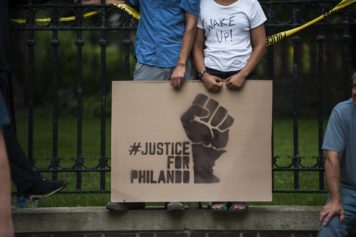
Trump’s plan to gut the Public Service Loan Forgiveness program would greatly reduce the pool of qualified public defenders. (Image courtesy of Lawyer’s Guide
Since 2007, the Public Service Loan Forgiveness program has made it possible for millions of students across the nation to afford school by forgiving hefty loans burdening those who have worked in public service for at least 10 years.
All that could soon change, however, as President Donald Trump’s proposed budget would eliminate loan forgiveness for students who become public defenders — potentially leaving America’s criminal justice system worse off than it was before.
Applications to pubic defender offices skyrocketed after Congress approved the program nearly a decade ago, as aspiring lawyers weighed the decision, and the cost, of attending law school, Vice reported. Collin Tierney, a public defender out of Minneapolis, Minn., said he was astonished by the overwhelming number of people suddenly interested in defending suspected criminals.
“These offices had no idea what to do with the amount of people that were suddenly applying for jobs,” Tierney told the magazine. “You had editors in chief of prestigious law journals, you had people that worked in federal government and corporate positions before law school … applying. People at the top of their class, and you had a lot of people like me who made a very conscious decision to go to law school to become a public defender.
“That large group didn’t exist before 2007,” he added.
Like many public defenders, Tierney is still paying off his law school debt — $240,000 of it to be exact — through the PSLF program, according to Vice.
The debt forgiveness program has helped bolster the public defender job market over the years, but Trump’s plans to gut it could leave many students unable to afford the high cost of law school. In his proposed budget, the president advocated for the elimination of the program for persons taking out loans past July 1, 2018.
“To support this streamlined pathway to debt relief for undergraduate borrowers, and to generate savings that help put the nation on a more sustainable fiscal path, the Budget eliminates the Public Service Loan Forgiveness program, establishes reforms to guarantee that all borrowers in [income-driven repayment] pay an equitable share of their income, and eliminates subsidized loans,” the budget reads.
“These reforms will reduce inefficiencies in the student loan program and focus assistance on needy undergraduate student borrowers instead of high-income, high-balance graduate borrowers,” it continues.
Heather Jarvis, an expert on America’s student debt crisis, disagreed, however, arguing that “Public Service Loan Forgiveness has leveled the playing field for graduates with expensive educations so that highly qualified professionals can do work that’s in the public interest in spite of the persistently low salaries in many of those fields.”
A 2015 report commissioned by the National Legal Aid and Defender Association found that nearly 70 percent of public defenders surveyed took or remained employed at their nonprofit jobs because of the federal loan forgiveness program.
Not only would Trump’s plan to cut the program drain the public defender job pool that has steadily grown over the years, but it would also limit the number of lawyers public defender offices could hire, Vice reported. This is especially concerning as the Trump administration and Justice Department look to revamp the war on drugs.
Spencer Watson, a rising third-year student at Berkeley Law School, likened it to a sort of two-pronged attack on due process.
“The one-two punch, in going after the ability of folks to access reasonable capital, reasonable debt, reasonable credit, and also cutting the ability of the government to fill that space with loans — you’re going to see a lot of bad loans made,” Watson told Vice. “What’s even more tragic than ending the program is that the people that would now be shunted out are the people who have already been left out for so long.
“We need those perspectives, we need those views. We need them in government and positions of power.”
Trump’s budget proposals have already faced tough opposition from both Republicans and Democrats in the Senate, particularly on his call to phase out the PSLF. Such a move would cause a dramatic shift in adequate representation, making it that much harder for the accused, especially the impoverished accused, to get the defense they deserve.
Congress is still struggling to pass the president’s budget.

